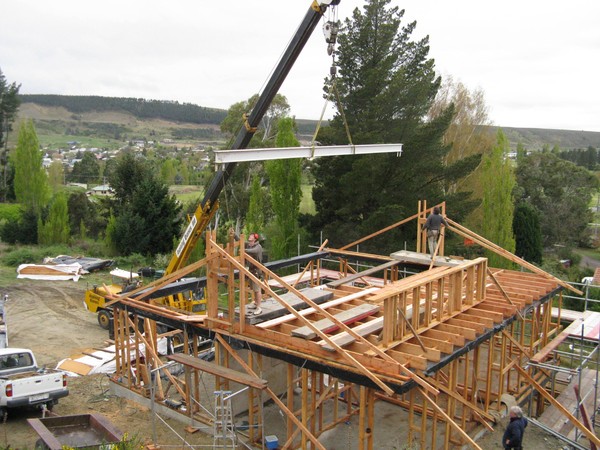A total of 2,271 new dwellings (including 1,640 houses) nationwide were consented in March 2015.*
This was 14% higher than in March 2014 and was the highest number of consents in a March month since 2006.
Statistics New Zealand business indicators manager Neil Kelly said that, after recent falls, the seasonally adjusted number of new dwelling consents increased by 11% in March 2015.
While the trend for the number of new dwellings consented has more than doubled since the series low point in March 2011, the trend is now flat, he said.
"Townhouses, units, and retirement villages have driven the increase in new dwelling consents over the past year.”
When it came to houses, the seasonally adjusted number of consents increased by 7.1% in March 2015, following on from a 1.6% increase in February.
Kelly said that, while the trend is up 7.1% from the March 2011 low point in March 2011, it is now decreasing.
Not surprisingly, the Auckland region led the way with 756 consents (449 houses). It was followed by Canterbury with 588 consents (460 houses) and Waikato with 219 consents (186 houses).
Westpac senior economist Michael Gordon said March’s 11% rise in residential building consents reversed the decline seen in the two previous months.
However, the level of consents remains below last year's peak, which does nothing to dispel the sense that the upward trend in building activity has stalled, he continued.
“There's a reasonable amount of evidence to suggest that capacity constraints in the building industry are starting to bite.”
Gordon said the main driver in March was a sharp rise in consents in the Auckland region.
While he recommended against reading too much into a single month's figures, Gordon said the figures provided some reassurance that the required uptrend in Auckland building consents is intact.
“For the year to March, there were 7,903 dwellings consented, the highest annual total since late 2005.”
In contrast, there was a further slowdown in consents in the Canterbury region – which was consistent with Westpac’s profile of quake rebuild activity, Gordon added.
“We expect the level of residential building work to peak around the middle of this year, with commercial and social buildings taking over as the driver of growth for the next year or so.”
Meanwhile, BNZ chief economist Tony Alexander yesterday said that Auckland would need a huge increase in building activity to address its housing supply shortage.
Speculating about just how big the city's shortage is, he said common estimates range from 7,000 to 30,000 - but, if the estimate was calculated on the basis of how many houses Auckland would need to give it the same dwelling occupancy rate as the rest of New Zealand, it would go up significantly.
“Auckland’s occupancy rate is 3 persons per dwelling. How many extra houses would you need to get Auckland’s ratio down to the rest of the country’s rate of 2.58? The answer is 76,000.”
Alexander said that, while no-one uses a figure near this, the exercise illustrated that a simple restating of what shortage means can lead to an estimate well away from other numbers.
It also illustrated that, unless there is a massive building surge adding thousands of dwellings on top of normal supply, it is unreasonable to expect any great convergence between Auckland and the rest of New Zealand’s dwelling prices.
*The unadjusted value of residential building consents was up 16% (to $925 million) in March 2015, as compared to March 2014.



![[OPINION] Recessionary times](https://www.goodreturns.co.nz/pics/people/thumbs/300/Gilligan_Matthew_GRA%20New.jpg)

 Search
Search
